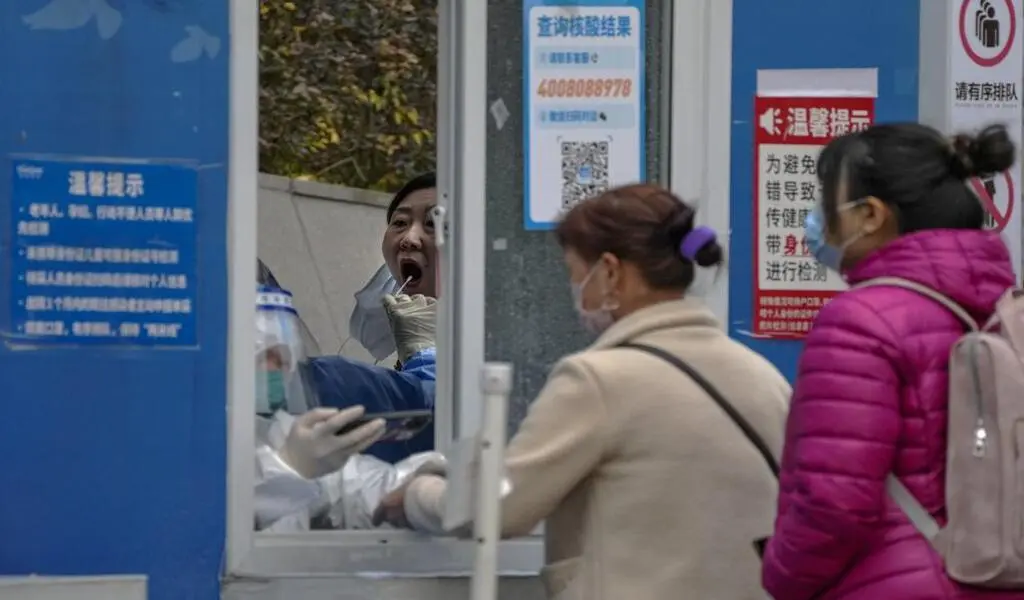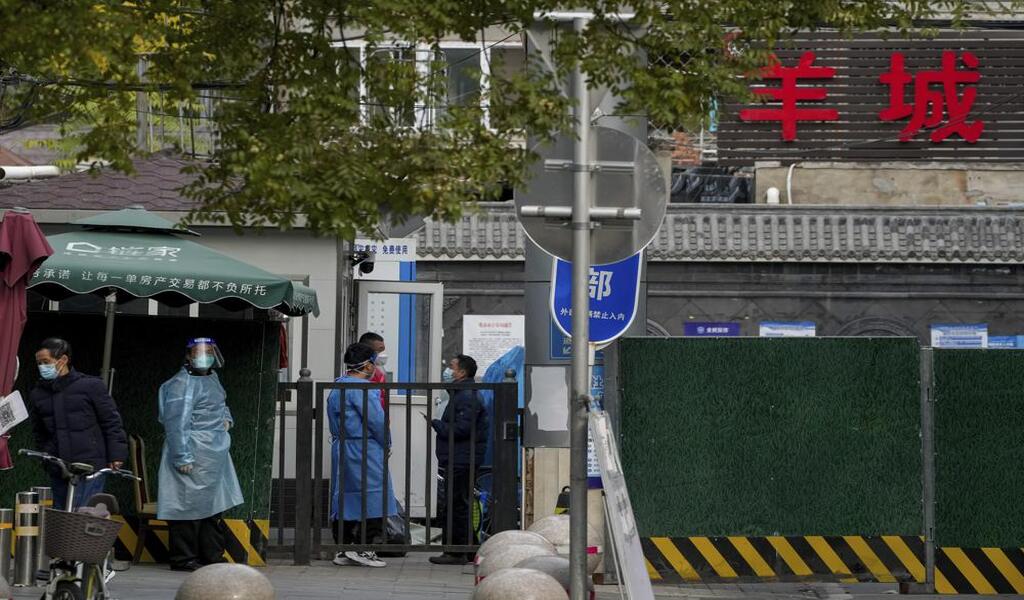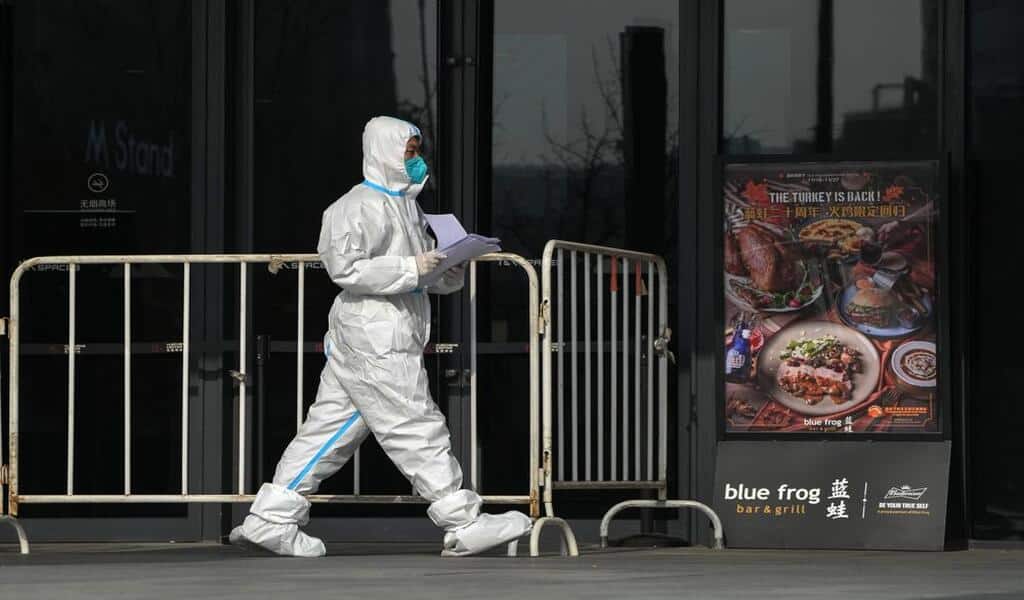News Asia
Anti-Virus Curbs In China Raise Global Economic Concerns

(CTN NEWS) – In the last three weeks, more than 253,000 coronavirus cases have been discovered in China, and the daily average is increasing, the government reported on Tuesday.
This puts more pressure on officials attempting to lessen economic harm by loosening rules that keep millions of people inside their homes.
Earlier this month, the government’s Communist Party committed to lessening disturbances from its “zero- COVID” plan by loosening up rules.
However, the most recent round of breakouts poses a challenge, leading big cities like Beijing to compel industries to separate their workforces from outside contact, close stores and offices, and block off populated districts.
This has increased concerns that a decline in Chinese corporate activity could harm the fragile global trade.
The official China News Service cited the National Bureau of Disease Prevention and Control as saying that the average daily cases over the last week were 22,200, twice the rate from the week before.
According to CNS, a bureau official named Hu Xiang stated at a news conference that “certain provinces are suffering the most severe and complex scenario in the last three years.”
Covid outbreak in China remains ‘severe and complex’, and that the coronavirus is spreading fast in some regions, health official Hu Xiang says
There’re less than 4 hospital beds for the seriously ill for every 100,000 people pic.twitter.com/0pxCsmyCIk
— D.A. Market Securities Trade Online (@itradeph) November 22, 2022
China has fewer infections than the United States and other big nations combined.
While other governments are reducing travel and other regulations and attempting to live with the virus, the ruling party is adhering to “zero COVID,” which advocates for isolating every case.
In addition to 25,902 instances with no symptoms, the government announced 28,127 cases discovered within the previous 24 hours on Tuesday.
9,022 people, or over one-third, were in Guangdong province, home to Hong Kong’s neighbouring export-oriented industrial hub.
Global stock markets declined on Monday as concerns over China’s restrictions were added to concerns over a Federal Reserve official’s remark made last week.

A man wearing a face mask talks to workers in protective suits near a metal barrier set up in a locked-down neighborhood and shops as part of COVID-19 controls in Beijing, Tuesday, Nov. 22, 2022. Anti-virus controls confining millions of Chinese families to their homes and shut shops and offices are spreading fears that already weak global business and trade might suffer. (AP Photo/Andy Wong)
The already high-interest rates in the United States could need to increase even further than anticipated to tame soaring inflation. Tuesday saw a mixed day for shares.
According to Fawad Razaqzada of StoneX, investors are “worried about diminishing demand as a result of a less mobile Chinese economy amid expectations there would be additional COVID-related lockdowns.”
The largest dealer in the world and the largest market for its Asian neighbours is China.
Global manufacturers of food and consumer goods, computer chips and other industrial components, oil and other raw materials, and consumer goods can all suffer from a decline in factory or consumer demand.
International trade can be hampered by restrictions that restrict activities at Chinese ports.
Hu, the government spokesman, stated that representatives were touring China and participating in virtual meetings to ensure the 20 anti-virus control improvements announced on November 11 were followed.

A resident puts on his face mask as he rests at a closed cafe and restaurant outside a shuttered shopping mall as part of COVID-19 controls in Beijing, Tuesday, November 22, 2022. Anti-virus controls that are confining millions of Chinese families to their homes and shut shops and offices are spurring fears already weak global business and trade might suffer. (AP Photo/Andy Wong)
They include reducing the seven-day quarantines for travellers entering China to five days and limiting the list of those who qualify as a close contact of an infected person.
Despite this, the 3.7 million-person Baiyun district of Guangzhou, the provincial capital of Guangdong, stopped access to it on Monday.
Shijiazhuang, an 11 million-person city southwest of Beijing, issued orders to some residents to remain at home while mass testing is being conducted.
Economic growth picked up from 2.2% in the first half to 3.9% in the three months that ended in September. However, activity had already begun to slow down.
In October, retail sales declined by 0.5% from a year earlier, slowing from the 2.5% gain in September as localities reinstituted anti-virus measures. Imports decreased by 0.3%, a reversal from September’s 6.7% increase and a sign of weak consumer demand.
In October, China’s exports decreased by 0.7% due to unusually substantial interest rate increases by the Fed and other central banks to curb inflation that has reached multi-decade highs.
These increases harmed consumer demand in the US and Europe.
Businesspeople and economists view changes in anti-virus regulations as a step toward removing restrictions that keep China from the rest of the world. However, they assert that “zero COVID” may continue to apply as late as the second part of the following year.

A worker in protective suit places closure notices on the barricaded restaurants at a shuttered commercial office building as part of COVID-19 controls in Beijing, Tuesday, Nov. 22, 2022. Anti-virus controls confining millions of Chinese families to their homes and shut shops and offices are spreading fears that already weak global business and trade might suffer. (AP Photo/Andy Wong)
Last Monday, Guangzhou revealed plans to construct quarantine facilities for nearly 250,000 people. In another district, Haizhu, 95,300 people were reportedly sent to hospitals or placed in quarantine.
Workers residing at their places of employment are referred to as “closed-loop management” at Shijiazhuang factories. That raises the price of food and housing.
According to a poll by professors at Peking University and a financial firm, Ant Group Ltd., business owners are unoptimistic about the upcoming quarter.
According to the report, a “confidence indicator” derived from replies from 20,180 business owners dropped to its lowest point since early 2021.
Economists and health professionals argue that the ruling party must immunize millions of old people before removing restrictions that bar the majority of foreign tourists.
In research, Oxford Economics’ Louis Loo stated, “We do not think the country is ready to open up yet.” “We anticipate that the Chinese authorities will continue to hone COVID regulations over the upcoming months, paving the way for a later, more thorough reopening.”
RELATED CTN NEWS:
At least 36 People have been Killed After a Factory Fire Broke Out in Central China






























